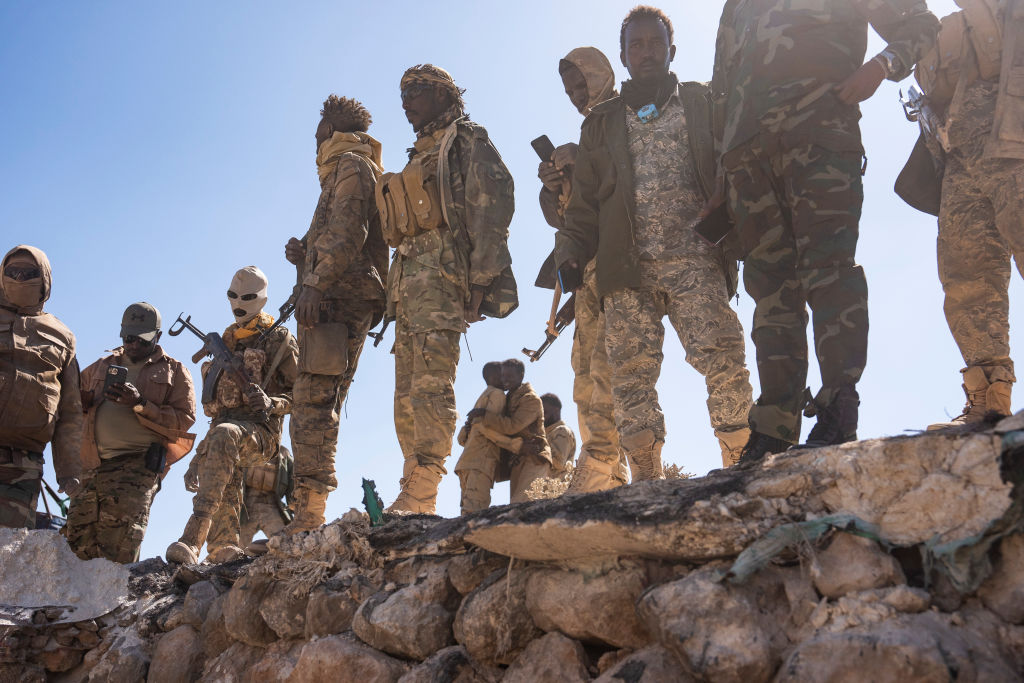Operating out of intricate cave complexes in the mountains of northern Puntland, the Islamic State in Somalia (ISSOM) has for years launched attacks on security forces and civilians. The area has emerged as a hub for generating and distributing cash for Islamic State group (IS) affiliates across Africa, the Middle East and Central Asia.
However, the terrorist group has suffered significant battlefield setbacks this year, and its reputation often is overstated, according to researcher Stig Jarle Hansen, professor of international relations at the Norwegian University of Life Sciences. Writing for The Conversation, Hansen noted that the group never has captured or held large territories, and its number of fighters in 2024 was estimated to be between 600 and 1,600 — far less than al-Shabaab in southern Somalia.
Puntland authorities in January mobilized 3,000 forces against ISSOM in the Al-Miskaad mountains in northeastern Puntland, forcing the group away from key supply routes and bases. In February, Abdirahman Shirwac Aw-Saciid, head of ISSOM’s assassination squad, surrendered to authorities in the mountains. In July, Puntland Defense Forces (PDF) and allied forces captured Abdiweli Mohamed Yusuf, ISSOM’s financial director, in northern Somalia, the Foundation for Defense of Democracies’ Long War Journal reported.
Puntland authorities said Yusuf also oversaw finances for the IS’s regional office in Al Karrar, which offers financial, logistical and technical assistance to other IS groups, including the IS-Central Africa Province (ISCAP), which operates in the Democratic Republic of the Congo and Uganda, and the IS Mozambique Province (ISM).
“If it is true that Yusuf had a dual-hatted position as the finance chief for both ISS itself and the Al Karrar office, then his arrest, and the information gleaned from it, may have reverberations for the Islamic State across much of Africa and beyond,” analyst Caleb Weiss wrote for the Long War Journal.
The office also has aided IS groups and networks in Afghanistan, Turkey and Yemen. Yusuf was accused of extorting millions of dollars from businesses, livestock markets, imported goods, and agricultural products in Puntland and Mogadishu, Somalia’s capital.
“Yusuf’s capture is so far the most significant blow to ISS’s leadership, as many of the group’s most senior leaders have so far survived the battles,” Weiss wrote. “Several lesser ISS commanders, however, [were] reported killed by Puntland military officials earlier [in July].”
ISSOM was founded and was for years led by Puntland native Abdul Qadir Mumin, a member of the Majeerteen subclan. Mumin lived in Sweden and the United Kingdom in the 1990s and early 2000s before settling in Somalia, where he joined al-Shabaab and became a prominent figure in propaganda videos.
Mumin defected to lead ISSOM in 2015. The first video of the group was circulated through IS media outlets the next year. Among ISSOM’s first milestones was the 2017 suicide bombing of a hotel in the port city of Bosaso, Puntland’s commercial capital. The blast killed at least five people, including a police officer, and injured 12.
“This enabled the Islamic State in Somalia to pressure Bossaso-based businesses to pay it protection money, the single most important source of income,” Hansen wrote for The Conversation.
ISSOM used this model in central Somalia between 2017 and 2018 when it assassinated as many as 50 people. The group was designated as a full IS province in July 2018 and was responsible for establishing ISCAP and ISM. It has since continued attacking civilians, al-Shabaab, and Somali, Puntland and international forces.
Mumin was the target of a U.S. military operation in June 2024, but a United Nations report said he escaped. And although ISSOM has suffered recent losses, Hansen warned the group is not defeated.
“If the Islamic State is still able to extort money from the northern business community, it could recruit from the large numbers of Oromo Ethiopian refugees in and around Bosaso, as well as locals who need jobs,” he wrote.

